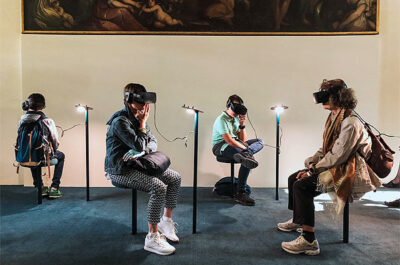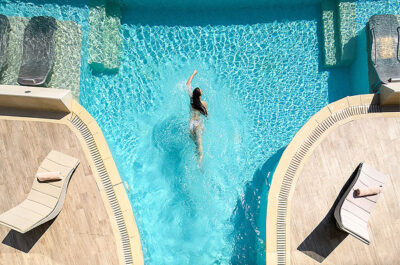Hotels move to a more conscious Safety standard, with Personnel’s Training, Fire Safety, Construction Specification and Hotel Transparency defining the upgraded Safety Culture.
In the major safety issue, hotels are one of the most demanding categories of business, as their needs are numerous and hoteliers are called upon to provide solutions to key issues that require high expertise. Safety at hotels is an undeniable requirement for travelers, which has become a powerful marketing reference point in recent years as it affects travelers’ reviews in various Review Websites and in many cases even the final decision to complete a booking.
At the same time, however, the Safety issue and the way it is communicated to hotel guests is an issue that needs discrete management, as the travelers wish to be protected, without however underlining the possible risks that may disturb their stay. Hotels are transformed into travelers’ “temporary homes” and the whole safety issue should be implied and not highlighted.
On the other hand, Safety at Hotels is an issue that should concern the hoteliers more, since from a purely business point of view it is a key point to ensure the proper functioning of the accommodation and the property itself. In such a business as a hotel, which is an active community that operates 360 days a year and 24 hours a day, prudence is required beyond each country’s safety requirements. In other words, any precautionary measure must be taken with a sense of benefit rather than just legal cover.
Even though the safety of a hotel is affected by various factors, such as the country where it is located, the general safety regulations of each area, the type of accommodation and much more, some rules are general and apply to almost all accommodation types. This article will analyze the key points of a hotel’s safety, focusing on those that directly affect the Guest Experience and that can simply ensure that both the accommodation and travelers themselves are safe.
Fire Safety: One of the most important parts of Safety that fully reflects hotels’ Safety Culture
One of the greatest risks that may seriously threaten the hotel as property and its guests is fire. In many cases, we find hoteliers relatively complacent about fire safety, taking care to cover typical issues required by the law. However, it should be made clear that fire is actually one of the major dangers that a hotel is called to foreclose on because nature itself favors the occurrence of an incident. Since a fire incident can be caused by a variety of factors, such as poor electrical maintenance, improper use of the kitchen and its equipment, even by smoking (no one guarantees that visitors will abide by the smoking regulation), the chances of a fire are more than we can assume and measures must be taken with awareness and seriousness to ensure full control of any such incident.
Therefore, the key points for fire safety, apart from the obvious ones such as the existence of fire extinguishers at the hotspots, the central fire extinguishing system, as well as the seamless emergency exits, mainly focus on the early detection of the spot where the fire broke out and the immediate information of both the personnel and the guests. In most cases, any potential fire can be completely controlled if detected before being spread and with appropriate intervention by specially trained personnel, the damage can be mitigated but mainly eliminate the risk for guests and personnel.
Proper investment in Fire Safety can significantly affect and support a hotel’s overall Safety Culture, as it requires multilevel organization that lays the foundation for other safety issues as well. After all, proper provision starts with the design of the building itself, the central energy management, the automated central control, and even personnel training.
As the issue of training of both the personnel and guests is important in case of a fire emergency, you can create a special incident information leaflet in a more creative way informing your visitors and employees without disturbing them, just like airlines do. Design the leaflet as a general information sheet and use the hotel as an example of proper organization where appropriate, while enhancing your sense of security and social responsibility, contributing to the development of collective consciousness.
Personnel Training: The most important investment that enhances safety technologies’ depreciation and boosts the overall safety feeling at the hotel.
In any crisis, whether it is an accident or theft or even a more serious emergency situation involving the property as a whole, it is the personnel’s crisis management that will largely determine the final outcome. On this basis, the personnel’s training is one of the most important tools for protecting a hotel.
It is quite common for hotels to limit themselves to train only the necessary people on key issues, such as providing First Aid or managing major crisis, without caring for a more comprehensive Safety Culture among its personnel. As personnel moving to the hotel industry has become a frequent phenomenon, the problem of education becomes even greater, with hoteliers ending up neglecting this important issue many times.
However, given that the problems that may arise in case of a crisis are many and particularly important, hoteliers should invest in proper personnel training and organize the mechanisms with which it will easier performed. More specifically, hotels may set the hotel’s “Safety Day” during which they will train their personnel as a whole in specialized issues and processes that will develop a more general knowledge and culture framework. With the proper communicational promotion on social media, the hotel may use this action as a dynamic marketing tool, since it has been proven that safety significantly affects the purchase decision; and trained personnel is definitely a significant advantage.
To resolve the issue of training new personnel, invest in creating Video Seminars on the key issues, which will be available on every new addition to your personnel. Although this cannot replace a seminar with physical presence, it could provide a good foundation for new employees. As the material is personalized, the impact is heightened and enhanced by the existence of specific tests that will ensure proper seminar attendance.
Construction Specification: Hotels are easier to be “safely designed” from scratch, reducing future risks and unnecessary costs.
Apart from the obvious immediate dangers, there is a number of security issues that arise from the model and design of a hotel and that are usually the ones that expose all the hotel guests as they create a permanent crisis situation. To make it easier to understand, we will analyze the issue of “pool risks”, which summarizes a number of errors that can endanger travelers and thus the hotel business.
In pools, it is very common for the surrounding area to be “slippery”, which has been recorded as one of the most frequent causes of accident at hotels. Obviously, the reason is the improper specifications of the materials used, which allow the occurrence of this phenomenon. In addition, there are a few times when we experience the “diving” phenomenon, an act which is not only dangerous but also annoying to the overall ambiance of the pool. In this case, the phenomenon can be eliminated if the site is properly marked. Finally, as pools are usually outdoors, it is quite often that travelers who desire to enjoy the serenity of evening swimming are led to accidents due to the lack of lighting.
Summing all the above up, the Architectural Design of a Hotel is undoubtedly a crucial stage that determines its serenity. With timely forecasting and proper study, the construction can exempt the hotelier from both unnecessary stress and second-line correction costs that usually increase the budget.
During the process of a hotel’s Architectural Design, you can designate a “Safety Meeting” where all the team participating will analyze any potential security issues that may arise, which could be prevented. This exercise will help you cover many issues you did not anticipate, as you will look at the project from a completely different point of view.
Hotel “Tech Control”: Control technology defines the perfect balance between a hotel’s sociability and safety.
The most common phenomenon that jeopardizes a hotel’s name in terms of safety is the issue of loss and theft of personal belongings, as well as the exposure to unsafe intentions of non-hotel guests. With modern accommodations being currently particularly “social” with public facilities that address to non-guests as well, the issue becomes more and more complex.
The solution is often found in technology, which now enables full “transparency” of a hotel, since television closed-circuits in public areas of the hotel accurately record everything (always respecting privacy since they record the guests’ faces), highly preventing possible incidents. Safety at hotels is further enhanced by the use of special electronic locks, which allows guests to access the most private areas of the accommodation using their room card, while preventing non-guests’ access to controlled areas, such as the Lobby or a cafe/bar/restaurant. Finally, the use of well-placed safes in rooms protects the guests’ valuables.
The use of technology, however, has become increasingly widespread in the safety sector, since in addition to the issue of human surveillance or protection or prevention (for example accident in a non-guarded area), it allows us to make full mapping of the hotel’s areas on energy, maintenance, technical issues and more. In other words, technology allows us to “radiograph” the current condition of our hotel at any time, preventing any potential risks.
As the Safety issue is now spreading to the issue of personal data protection, you can run an awareness campaign for protecting their privacy. Safeguarding travelers with their personal data is a matter that concerns more and more people and the verification of their protection can ensure a more pleasant ad comfortable stay.
Conclusion
Clearly, the list of a hotel’s safety issues is particularly extensive and multilevel. However, most of the burden now falls on the awareness of the measures that the hotelier will take rather than practically implementing them since safety means management and management requires awareness. With all the pillars we have analyzed being particularly important, Hotelier Academy underlines the training issue since it is the one that will ensure a true Safety Standard.
* Article published in Hotelier Academy.
Nikos S.Morantis one of the two Co-Founders of Hotelier Academy and great admirer oh the hospitality industry. He specializes in Hotel Strategy, Digital Marketing and Hotel Concept Making and writes some of the most inspiring articles in Hotelier Academy.

































































































































































































































